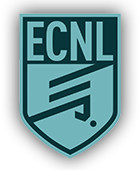Long-Term, Player-Centric Development Philosophy
The best youth soccer clubs are focused on one priority above all others: individual player development. While almost everyone talks about this focus, few act on it to the degree they espouse, and even fewer execute it effectively.
The best youth soccer clubs are focused on one priority above all others: individual player development. While almost everyone talks about this focus, few act on it to the degree they espouse, and even fewer execute it effectively.
Below are some thoughts about what individual player development looks like (and what it doesn't look like):
1) In youth soccer, team records and team wins mean nothing in comparison to the speed of individual growth. Youth soccer history is littered with examples of very “successful” teams at U16 and below who fall apart by U18, or who end up with very few players moving on to play in college. The reason for these failures: success in the young age groups was phantom – based on athletic differences created by early maturation, or based on performances of 2-3 players that hid the reality that the majority of players were not developing properly. In contrast, true youth development is about the individual players and their individual growth and maturation over the long-term. We refer to this philosophy as being “player-centric” not “team-centric.” In a player-centric environment, every decision is made based on its impact on the individual player. In the long-term, player-centric decisions develop great players and eventually develop great teams. In contrast, in a team-centric environment, success early usually comes at the detriment of long-term success (both individual and team).
2) Name the legendary soccer players in women’s soccer over the past 20 years - names like Mia Hamm, Kristine Lilly, and Julie Foudy come to mind. Now think about the current generation of national team stars – Abbie Wambach, Hope Solo, Alex Morgan, and more. Do you know who they played for as youth players? Do you know whether these players won a state cup as U14s? Do you know whether they played on a team that won more games than they lost at U15? Does it matter? Of course not … although you don’t know the answers to these questions about their youth careers, you know the long-term outcomes of their decisions. These players (and their families) made the right decisions as youth players - (to work hard, train on their own, put themselves with great coaches, and put themselves in the most competitive environments possible) - and these decisions paid off when it really matters – when the player got to college and into youth national teams. Keep this in mind when people start talking about wins and losses in youth soccer when club choices are in play. If you are focused on the long-term, these things don’t matter. If you are focused on the long-term, only one thing matters – being in the best developmental and competitive environment possible.
FC Wisconsin is about player-centric, long-term player development. We want players that come early (at U12, U13 and U14 if possible), stay for the long-term, and leave as U18s accomplishing every personal goal they set. We want players that “bubble up” to the top at U15, U16 and U17 to join us now – to maximize the time they can be in the program.
As a staff, our history of player development is not limited to 3-4 players in one graduation year that “made it” to college. It is not limited to 1 outlier team that vastly out-performed every other prior team. Our history is of dozens and dozens of players that “made it” to college from team after team after team, players that went on to be college All-Americans, captains, and more, and a few that have even worn the USA jersey as youth national team players. These accomplishments are the result of a player-centric, long-term focus.



